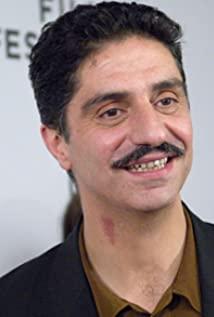Movie, how to remember the massacre?
On October 10, the U.S. House of Representatives Foreign Affairs Committee passed the "Armenian Genocide" motion, which characterized the killing of Armenians during the First World War as "the Holocaust". This sparked strong dissatisfaction with the Turkish government, which recalled the ambassador to the United States to discuss countermeasures. Although successive Turkish governments and academic circles have always denied that between 1915 and 1917, when the Turkish Ottoman Empire ruled, there was a massacre that the Armenians insisted, resulting in the deaths of 1.5 million ethnic groups, and even admitted the "massacre" into Article 301 of the new criminal code. Convicted, but many parties, including France, Russia, Greece, the European Parliament and the United Nations, have admitted the existence of "genocide" crimes in different historical periods. He will be sentenced to one year in prison and a fine of 45,000 euros. Behind these actions against Turkey, there is indeed a strong lobbying role of Armenian people from all over the world, and the long-term wrestling of various hidden interest groups seems to have reached its peak at this time. And what is the truth? In 2002, Armenian-Canadian director Atom Igyan used a powerful "Alara Mountain" to describe the difficulty of seeking the truth.
Igyan brings his own confusion into the director's role in the film. Through the creative process of finding the painful history of the nation, he will pass on the imprint of the Holocaust to the future generations of the nation to more people: as a film consultant, history teacher , the teacher's drug-addicted son, the teacher's writing about the painter as a survivor of the massacre, the Canadian customs who checked his son's film case, and even the Turkish gay lover who was the son of the customs, who happened to be the Turk in this movie about the massacre. A vicious officer. Most of these characters are descendants of massacre survivors who try to recreate crimes they didn't witness. These crimes were easily erased at the beginning of the last century when the information was not yet developed. Today, historians or film directors are trying hard to find the truth that cannot be restored through blackboards and lenses, looking for the eradication in time and geography. traces of the nation's existence.
Of course, in the absence of conclusive evidence, calm audiences have to bear the notoriety of "cold" and wonder whether the director, as an Armenian, will deliberately magnify and exaggerate the history of the ethnic group's slaughter. This is also the dilemma faced by Holocaust movies. Political correctness on one side is not necessarily historical correctness on the other side. Fortunately, except for the Armenian genocide, which is still vague due to its long history, the rest of the historical facts of the genocide have been recognized to various degrees, and correspondingly appear in the relevant film works. For example, there are endless films about the Jewish concentration camps of World War II, "Hotel Rwanda" about the 1994 Rwandan genocide, "The Battle of Chiko" about the 1995 Srebrenica massacre in Bosnia and Herzegovina, suggesting that the Soviet army was in 1939 before. "Sweet Movie" about the extermination of 20,000 Polish prisoners of war in the Kayan Forest. The recent news that the Cambodian government has arrested the second leader of the former Khmer Rouge regime also reminded moviegoers of the films "Killing Field" and "S-21", which were about the extermination of one-third of the Cambodian population.
However, there are two embarrassments that lie ahead of literary and artistic efforts to explore the Holocaust. First, many contemporary literary and ideological debates on the Holocaust often lead indifferently to intangible heights such as anthropological behavior and national temperament, while ignoring the greatest unfortunate in the Holocaust—the individual itself. Second, film directors look back at the tragic history of their own nation with grief and indignation, and are often questioned whether they will be carried away by anger, which will affect the subsequent promotion of the film. This was especially evident before the Nanjing Massacre about the scars of our nation. Recently, the American documentary "Nanjing" is still popular in domestic theaters. It is reported that it will be until the 70th anniversary of the Nanjing Massacre. The film restores the bearers of grief to the few broken individuals who survive, making us feel the pain. In addition, I can be pleased that there is such a third-party "neutral narrative", and after I am relieved, I can wait for Lu Chuan's masterpiece "Nanjing! Nanjing! ”, and thought, film, how to remember the massacre?
At the end of "Alara Mountain", the historian's son brought back from Turkey the film box that recorded the original site of the massacre, but Canadian customs suspected that there were drugs in it and asked to open it for inspection. Whether drugs or film, once opened, it is destroyed. The distance between exposure and the truth is so far away that it is bound to be strangers. Obsolete history, forgotten times are boring to the victors.
View more about Ararat reviews











